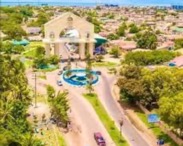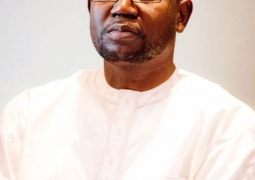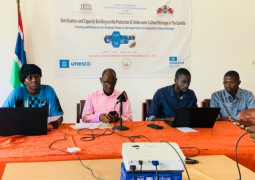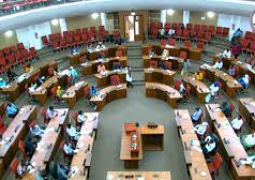
Reduced rainfall and proactive measures have contributed to smoother daily activities and fewer waterborne diseases. However, concerns linger about the long-term sustainability of these improvements, especially regarding the city’s drainage capacity and the impact on agriculture.
Residents of Banjul have noted a marked improvement in the city's road conditions and overall infrastructure compared to last year.
Sulyman Njie, a long-time resident, attributes these positive changes to enhancements in the main canal and the clearing of various blockages that had previously impeded water flow. He also praised the efforts of local councillors, who this year took the initiative to clear drainage systems clogged with plastic waste and excess soil, thus further improving the city's ability to manage rainfall.
"This proactive approach represents a significant shift from the past, where maintenance was primarily seen as the responsibility of the Banjul Project and Gai," Njie remarked.
Njie also highlighted the ongoing Banjul Rehabilitation Project, which has substantially reduced the prevalence of potholes in the city. However, he expressed concerns about the durability of the project, pointing out that cracks have begun to appear on some streets, particularly in commercial areas frequented by heavy vehicles. He emphasised the importance of making the contract documents publicly accessible so that residents can hold contractors accountable if the project fails to meet its guarantees.
Another critical issue Njie raised is the city’s drainage system. He stressed the need to maintain and enhance the drainage capacity, since much of Banjul is now paved with concrete roads, which increases the volume of water that must be managed. Njie warned that if the Bund Road Pa Machine is not equipped to swiftly pump excess water into the sea, the city could face constant flooding, leading to drainage systems backing up into homes and contaminating living areas with toxic water.
Hon. Modou Lamin B. Bah, the National Assembly Member for Banjul North, also affirmed the improvements in Banjul’s handling of the rainy season. He reported that the city received less rainfall this year, leading to a noticeable reduction in waterborne diseases. Bah credited the proactive measures taken by the community, including a pre-season cleaning exercise that cleared blockages from drainage systems, ensuring smoother water flow and a cleaner environment.
Reflecting on past challenges, Bah recalled the severe flooding that previously forced many households to evacuate their homes. Although early season rainfall posed similar risks, swift action from the authorities helped mitigate the impact. Bah urged government to fully commit to completing the Banjul Rehabilitation Project, which he believes is near completion. He emphasised the need for acquiring the necessary equipment outlined in the project to prevent future flooding, particularly given Banjul’s vulnerable position at just 0.5 meters above sea level.
Meanwhile, Amadou Wurry Jallow, another resident of Banjul, expressed relief that the limited rainfall this year has not disrupted his daily activities. However, he voiced concern for farmers and their crops, noting the potential impact of the unusual weather patterns. Despite the challenges, Banjul has so far been spared from flooding this year, but residents remain cautiously optimistic as the rainy season continues.





